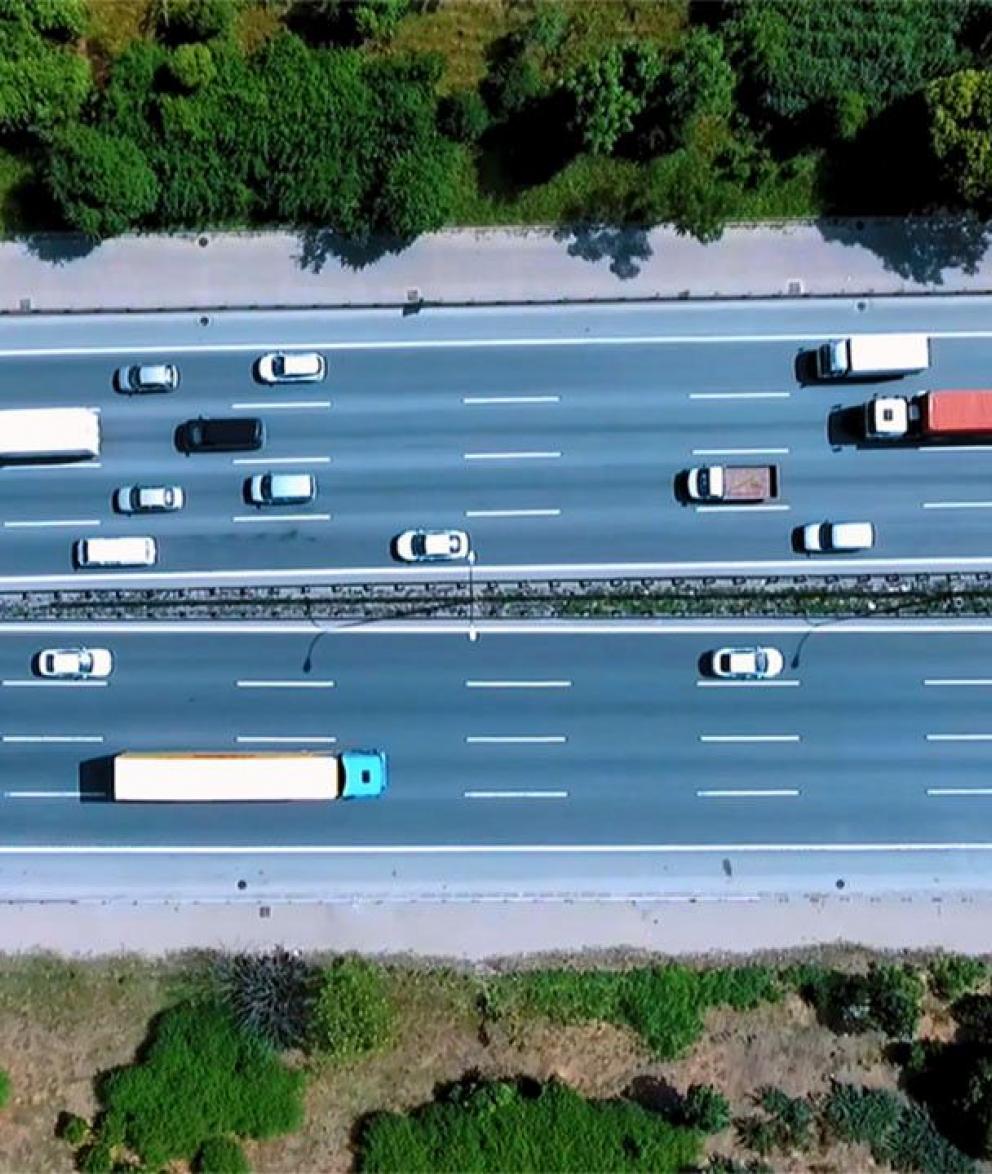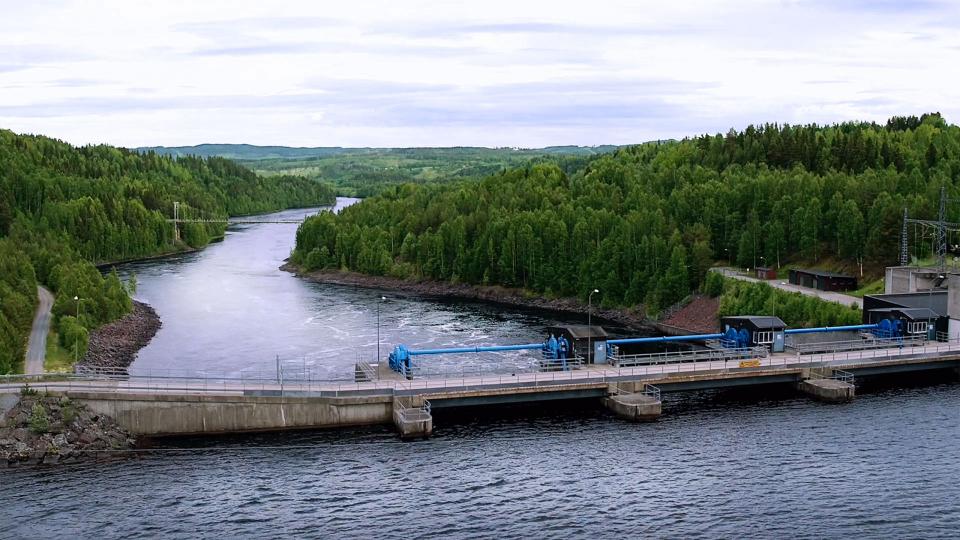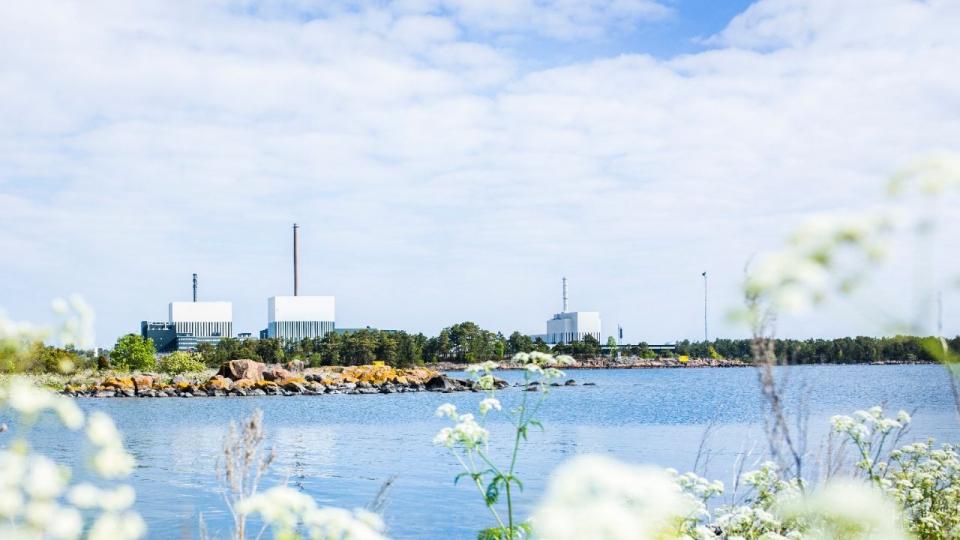If all of Sweden’s cars were to be replaced by electric vehicles and recharged using Swedish fossil-free electricity, we could reduce our carbon emissions by approximately 10 million tons, which corresponds to one-fifth of Sweden’s overall carbon emissions. However, the results would not be as good in many other countries. If the very same EVs were to be charged using electricity from the global electricity generation mix, carbon emissions for the same number of EVs would only be reduced by 3 million tons. We have reason to be proud of our fossil-free electricity system in Sweden.
Electric cars are only as clean as their power supply.
So what would actually happen if we replaced all of our regular cars with Electric cars in Sweden?
Electrification is here to stay
More and more of Sweden’s inhabitants are choosing to switch from their petrol or diesel vehicles to EVs. From early 2012 until the end of 2021, the number of rechargeable vehicles in Sweden increased more than 200 fold. Vehicle manufacturers have also understood that EVs are the future. To keep up with the increasing number of EVs that require recharging, the EV infrastructure must also be expanded to increase the number of charging points in Sweden. In March 2021, there were more than 12,000 public charging points in Sweden. More are constantly being built for the convenience of EV drivers.
Politicians and other decision-makers appreciate the advantages of reducing Sweden’s dependency on fossil fuels. In 2015, the Swedish government launched the Fossil-free Sweden initiative with the aim of making Sweden the world’s first fossil-free developed nation. If we are to succeed in becoming fossil-free, we must stop driving cars with internal-combustion engines.
Increasing the number of EVs in Sweden is beneficial to all of society. With EVs, we can avoid emissions that pollute the air in our cities and add to the problem of global warming. We will also be less dependent on imports of oil from other countries and thereby, less affected by oil-price fluctuations. Sweden currently produces a sufficient amount of fossil-free electricity to avoid these oil imports from other countries. We are even exporting electricity to neighboring countries.
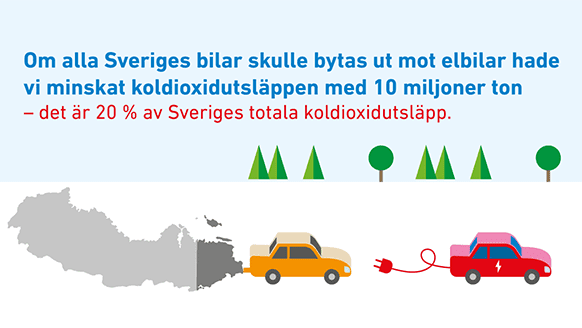
The Swedish electricity system – high-quality with low emissions
Whenever EVs are promoted as a solution to the global climate problem, one of the objections raised by some people is that electricity generation can also cause emissions. The environmental performance of an electric car depends on the electricity used to charge it. If the electricity comes from coal power, driving it is not environmentally friendly at all. Fortunately, the Swedish electricity system has nearly zero emissions. With hydropower and nuclear power at the base of our electricity system, we have high-quality fossil-free electricity regardless of the weather. One added advantage is that our electricity prices are low in comparison with many other countries, which means that we can recharge our vehicles in good conscience, climate-wise and wallet-wise.
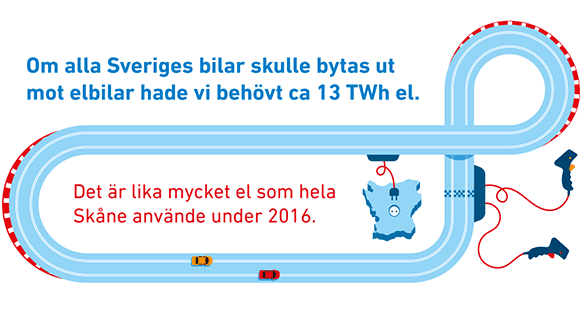
More electricity – not less
The increasing number of EVs in Sweden is an indicator that we will need to produce more electricity. If all of Sweden’s cars were to be replaced by EVs, we would need about 13 TWh of electricity, which corresponds to the electricity used by the entire county of Skåne in a normal year. Therefore, it is more important than ever that we continue to produce a large amount of high-quality electricity from fossil-free sources. Baseload power is particularly important, if Sweden’s drivers are to be able to recharge their EVs throughout the year, regardless of the weather and without disruptions or power failures. Today, hydropower and nuclear power provide Sweden with stable baseload power throughout the year. The higher the share of weather-dependent electricity from wind power in our electricity system, the more important baseload power becomes, to provide stability. By utilizing Sweden’s baseload power, we can manage the challenges that electrification will entail and become fossil-free once and for all.
It is a known fact that battery production must be more energy efficient if the large-scale use of EVs is to be sustainable. This will require the development of new technologies. The automotive industry is investing considerable resources in research to increase the recyclability of worn-out batteries and to develop new battery technologies. That the Swedish electricity system is 98% fossil-free is good for the climate – that is where we contribute as electricity producers. However, the entire lifecycle perspective must be factored into the equation. How can it help the climate if our vehicle fleet in Sweden is powered by fossil-free electricity, while its materials manufactured in another part of the world are adversely impacting the climate
Find out more
With the help electricity, we can replace fossil fuels and drive new innovations. We will thus require more – not less – electricity in the future, in order to resolve climate challenges.
Nuclear power plays an important role in stabilizing Sweden’s electricity generation. Uniper takes total responsibility for our participation in Swedish nuclear power.
With electrified autonomous public transportation, traffic jams will be a thing of the past, while emissions are eliminated. Autonomous electric shuttle buses are already on the streets today, in countries such as Finland.
